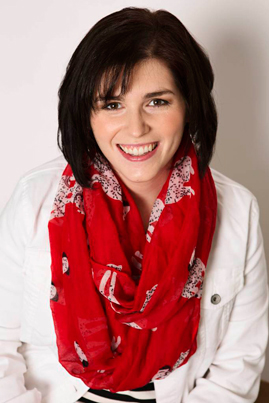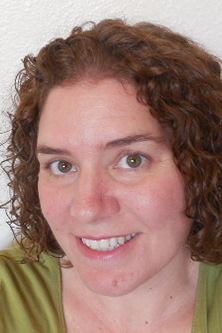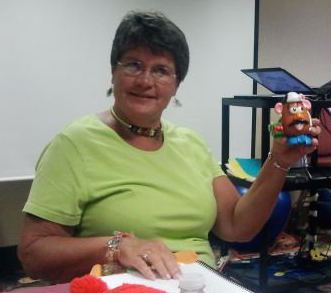Have You Considered Childbirth Education As a Career? Lamaze Certified Childbirth Educators Speak Out
By: Sharon Muza, BS, LCCE, FACCE, CD/BDT(DONA), CLE | 0 Comments
 Next month the Lamaze International exam to become a Lamaze Certified Childbirth Educator will be held April 13-15th all around the world. The exam will also be offered for a second time this year in November. The deadline to register for the spring exam is just around the corner and closes on March 14th. Many educators on both the new and experienced pathway will sit for the exam in the hopes of being awarded the "LCCE" credentials. Being a childbirth educator can be a very rewarding and flexible career, and Lamaze International credentials have long been recognized as the Gold Standard of childbirth education certifications. I thought it might be interesting to hear from several Lamaze Certified Childbirth Educators who are at various points in their LCCE careers, to learn about their thoughts in being an LCCE educator.
Next month the Lamaze International exam to become a Lamaze Certified Childbirth Educator will be held April 13-15th all around the world. The exam will also be offered for a second time this year in November. The deadline to register for the spring exam is just around the corner and closes on March 14th. Many educators on both the new and experienced pathway will sit for the exam in the hopes of being awarded the "LCCE" credentials. Being a childbirth educator can be a very rewarding and flexible career, and Lamaze International credentials have long been recognized as the Gold Standard of childbirth education certifications. I thought it might be interesting to hear from several Lamaze Certified Childbirth Educators who are at various points in their LCCE careers, to learn about their thoughts in being an LCCE educator.
Kate Lindberg, LCCE - Brand New Educator
Kate is a newly certified childbirth educator who received her LCCE credentials in just the past year. Kate teaches for Parent Trust for Washington Children in the Great Starts program in Seattle, WA, as well as leading a perinatal group and working as a birth doula. You can learn more about Kate on her website.
Sharon Muza: How long have you been an LCCE?
Kate Lindberg: Less than a year. It was quite a whirlwind of an experience! I took my Passion for Birth seminar from Teri Shilling and Sharon Muza in February of 2015, sat for the exam in April, and received the official word that I could call myself an LCCE in May. If you are wondering if it can be done in a short timeframe, it can!
SM: Where do you work?
KL: I work for a non-profit called Parent Trust for Washington Children through their Great Starts program. Although I get to teach at a few different facilities, I mainly teach at a hospital. (It just happens to be the same place both of my children were born, which is pretty special!)
 |
| © Kate Lindberg |
How long have you been teaching CB classes?
KL: August 2015 was my first chance to dive into teaching classes on my own, so seven months. After being hired on in May, I first had the incredible opportunity to observe and then co-teach a series with veteran childbirth educators. What a gift!
SM: Why did you choose to certify with Lamaze International? What does being Lamaze certified mean to you?
KL:Lamaze appealed to me for so many reasons. I absolutely love the amount of support they offer their educators and families. Finding a community was extremely important to me- and I feel like I found that through Lamaze. I was really drawn to the warm, non-judgmental tone of, well, everything. The 6 Simple Steps for a Healthy & Safe Birth seemed to offer such a sound, evidence based foundation for teaching; it just clicked for me. Lamaze is all about supporting families, and so am I.
SM: Please share what you love about teaching?
KL: What don't I love about teaching?! Getting to explore labor, birth, and beyond with families is a blast! I love walking alongside as they figure out what is important to them, all while empowering themselves with information. I am especially passionate about figuring out ways to teach so that alllearners can access the content. It usually equals lots of interaction and even more fun!
SM: Any challenges or less favorite parts that come to mind about teaching CBE?
KL: The sheer amount of information is truly the biggest challenge as a new childbirth educator! To me, it is very similar to learning a new language. I have all this knowledge floating around in my head, but to be able to pick specific pieces out on the spot and explain it in a way that families will be able to understand and retain is quite an art! Luckily it seems to get a bit easier with every series I teach.
SM: Looking back over the length of time you have been teaching CBE - what things stand out as having changed the most? What has seemingly stayed the same?
KL: Even though I am very new to childbirth education, it is amazing how much new information has come out in just the last year! I'm really excited to see where the birth world is 20 years from now.
SM: If you could pass one important message to expectant families - what would you want that to be?
KL: Labor, birth, and parenting is hard work, but you can do it! You are the right parents for your child(ren).
SM: One tip for those scheduled to take the exam in April?
KL: Do not neglect the modules! If you put in the work there, you'll get through the exam with ease Good luck!
Stacie Bingham, LCCE, CD(DONA), La Leche League Accredited Breastfeeding Counselor - Nine Years In
 |
| © Stacie Bingham |
Stacie Bingham has been an enthusiastic contributor to Science & Sensibility in the past, sharing her fun and creative teaching ideas. Stacie has been supporting new families as a birth professional in California's Central Valley, including teaching Lamaze classes to expectant families. Stacie's nine plus years of teaching experience has offered her lots of opportunity to support families as they prepare to birth and parent their babies. You can learn more about Stacie on her website.
Sharon Muza: How long have you been an LCCE?
Stacie Bingham: I originally became certified in 2008, and then I let my certification lapse; I retook the exam last spring and will not let this credential expire again!
SM: How long have you been teaching CB classes?
SB: I have been teaching classes since 2007.
SM: Where do you work?
SB: I started out working for a hospital-based midwifery clinic - I was there for five years. We relocated a few years ago, and I currently teach independently.
SM: Why did you choose to certify with Lamaze International? What does being Lamaze certified mean to you?
SB: When searching out childbirth education organizations, my DONA doula trainer suggested Lamaze. I was looking at a distance program initially, as it would have been much easier. After looking at the Lamaze process, I decided it felt more credible, even though it wasn't as easy. Being a Lamaze educator is something that makes me happy. I took the steps and did the work to EARN this certification. When I worked in the midwifery office, the staff knew I was in touch with current evidence. It was often my responsibility to find evidence to stay current with best-practice - an office of providers trusted me to do this, and my Lamaze certification was a big reason why.
SM: Please share what you love about teaching?
SB: The people! I love the people. I am quite social, and I love engaging with families as they prepare for birth. I love getting people laughing and smiling, while also offering valuable tools they can use to shape their births. I have a relaxed style as an educator - it is important to me that a person's state of mind is calm enough to let in new ideas and information. And always, always I build my classes with a foundation of trust, knowing families can make the right choices for their unique experiences.
SM: Any challenges or less favorite parts that come to mind about teaching CBE?
SB: As an independent educator, it can be difficult to start your own classes and fill them.
SM: Looking back over the length of time you have been teaching CBE - what things stand out as having changed the most? What has seemingly stayed the same?
SB: When I first began we didn't have Smart phones - those make capturing attention difficult sometimes, although most understand and keep their phones put away during class. The flip of technology advances is how easy we can stream fabulous video clips, eliminating the need to purchase expensive, professionally-made media.
SM: If you could pass one important message to expectant families - what would you want that to be?
SB: My message to families is always the same two points:
- Birth is not rocket science. Take what you know about this woman, and apply it to a day where she is working very hard. Birth is a working day. We have days when we are on vacation and at the beach, and days when we reroof the house. Birth is a working day, and then it's over.
- Most of having a baby is a mental game, and you can psych yourself up or psych yourself out. Once you are psyched out, it is hard to regain your confidence and trust. Work to stay positive by having a birth team of helpers who understand birth and can assure you this is normal (like a doula).
SM: One tip for those scheduled to take the exam in April?
SB: If you have created a curriculum or are teaching already, plug in all the evidence-based information you can. If you are already teaching the evidence, you will have a much easier time passing the test.
SM: Anything else you would like to say?
SB: I love that Lamaze doesn't say any particular intervention is bad. My simple explanation of Lamaze to families is, nothing is bad if it's needed; if you don't need it, then don't get it. This helps me be unbiased when presenting evidence in my classes. By citing facts, there is no opinion involved on my part, and families can better place that information into context to make their choices.
Ann Tumblin, LCCE, FACCE, CD, BDT(DONA) - A Full, Rich and Extensive Career Teaching Families and Educators
 |
| © Ann Tumblin |
Ann Tumblin has been a Lamaze Certified Childbirth Educator for 37 years. In addition, she is also a trainer with the Lamaze Approved Program - Passion for Birth. Both expecting families and new educators have had the pleasure and joy of learning from Ann over the years. Ann teaches in Topsail Beach, NC. I have been lucky enough to learn from Ann at a Lamaze International conference and she has mentored me on several occasions since I became an educator. You can learn more about Ann on her website.
Sharon Muza: How long have you been an LCCE childbirth educator?
Ann Tumblin: Since 1979.
SM: How long have you been teaching CB classes
AT: Since 1979 - continuously. In 2012, I stopped group classes and began private classes as I began my gradual retirement.
SM: Where do you work?
AT: I have taught with an independent group that I was part of forming and for a hospital and independently.
SM: Why did you choose to certify with Lamaze International? What does being Lamaze certified mean to you?
AT: My mentor at the time asked me to certify with Lamaze. I wasn't aware of different groups back then. Just followed her lead.
SM: Please share what you love about teaching?
AT: Helping participants find their "AHA!" moments.
SM: Any challenges or less favorite parts that come to mind about teaching CBE?
AT: Sometimes care providers can cause challenges by questioning what we teach.
SM: Looking back over the length of time you have been teaching CBE - what things stand out as having changed the most? What has seemingly stayed the same?
AT: In the 70s and 80s, there was a lot more focus on BREATHING. Now the focus has shifted to information that helps participants make choices. There are a lot more classes in hospital settings. At first, they were all outside the hospital. Then there were a lot of hospital classes and now I see more independent classes again. I am seeing more evidence based classes being offered, which is a good thing.
SM: If you could pass one important message to expectant families - what would you want that to be?
AT: Your body knows how to give birth. Trust your body but become educated to learn your choices.
SM: One tip for those scheduled to take the exam in April?
AT: I've never taken the exam - that was not how things were done during my certification period. But, when I became certified, I had to complete so very much more than an exam. You would be amazed at the steps I had to complete. There was even a formal interview from a group of LCCEs to be accepted into the program. One day I will tell you all the details of the things I needed to do to become certified. But my one suggestion for those taking the exam now would be to read The Official Lamaze Guide and study the Healthy Birth Practices.
SM: Anything else you would like to say?
AT: In the past I found it very rewarding to review course designs and mentor candidates through their student teaching. While this is no longer part of the formal certification program, I think it is important for new educators to seek guidance from experienced educators who teach dynamic classes.
Resources
Here is a compilation of resources to help you navigate the path to a rewarding career as a Lamaze Certified Childbirth Educator
Read Cara Terreri's Journey to LCCE Certification on Science & Sensibility
Learn why the Lamaze Certification Exam is considered the gold standard in Judith Lothian's article - The Science Behind the Lamaze Exam and the Lamaze Certified Childbirth Educator Credentials.
Find a Lamaze Approved Seminar to attend and start your own journey.
Check out the Lamaze International Certification Decision Tree to determine what pathway is right for you.
Use the Lamaze International LCCE Educator Guide to explore the entire process of becoming an LCCE educator.
Join Lamaze International Past President Robin Elise Weiss, Lamaze Educators and Staff for a Twitter Chat on the topic of becoming a childbirth educator. This chat will be held on Thursday, March 17th at 9:00 PM EST by using the hashtag #LamazeChat.
On a personal note, I am starting my 13th year as an independent childbirth educator (and my 8th with the LCCE credentials) in Seattle, WA and I absolutely, totally, completely love working with new families in the role of educator as they prepare to welcome a new baby into their life. If you feel that you also would enjoy becoming a childbirth educator, I strongly encourage you to reach out to me, another LCCE educator or the Lamaze office staff to learn more about your options and how joining the Lamaze family can benefit you and support you on your own personal journey to becoming a Lamaze Certified Childbirth Educator. Shoot me an email with your questions and I would be delighted to compile them and answer on a future blog post right here. What questions can I answer for you?
Published: March 08, 2016
Tags
Childbirth educationLamaze InternationalHealthy Birth PracticesProfessional ResourcesAnn TumblinLamaze CertificationLCCELamaze ExamStacie BinghamLamaze NewsKate Lindberg